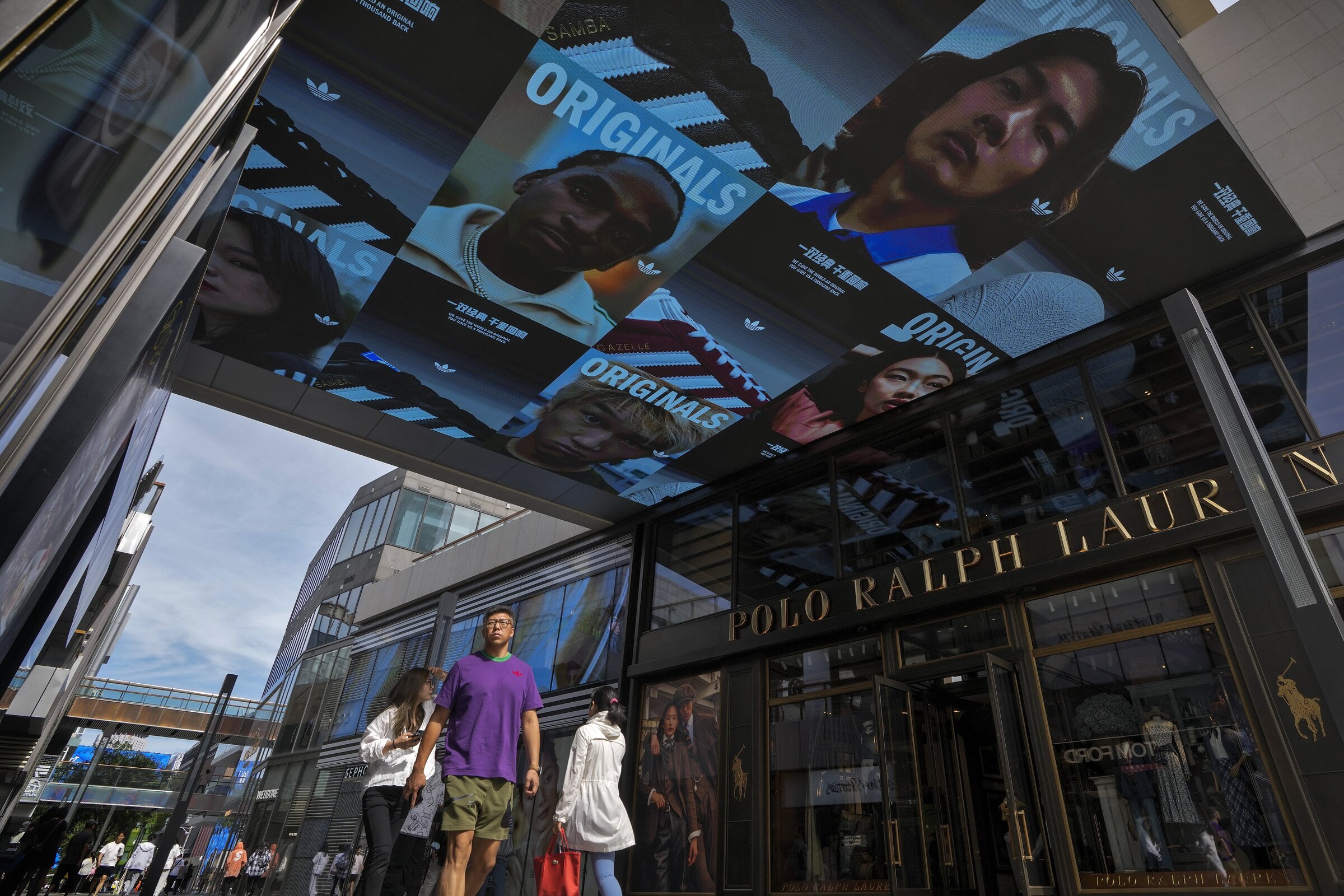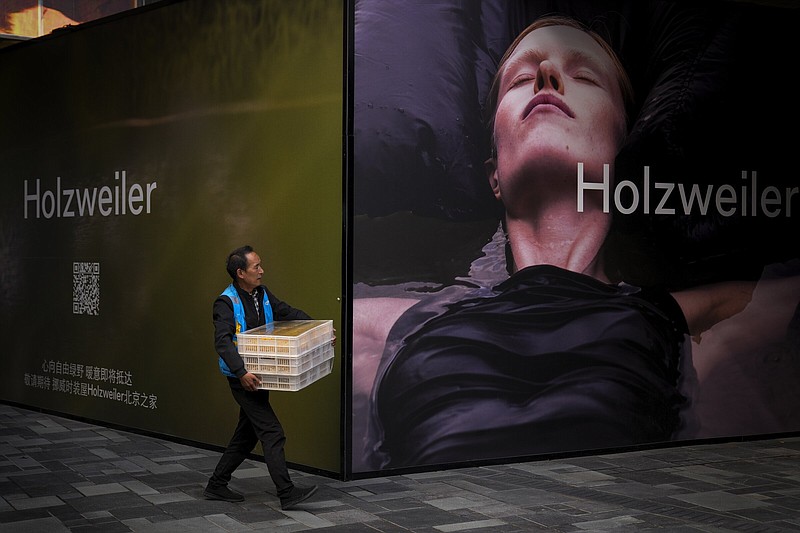Leading Chinese planners voiced confidence last week in the outlook for the world's second-largest economy, holding key interest rates steady amid signs of improvement in some areas such as services.
The upbeat tone of officials speaking at a news conference in Beijing was in contrast to forecasts by the Asian Development Bank and the Organization for Economic Cooperation and Development, which say weaknesses in the Chinese economy are expected to further dent global and regional growth.
Cong Liang, vice chairman of China's chief planning agency, the National Development and Reform Commission, told reporters that the country's resilience during past crises was grounds for confidence and that improved factory output and tourism figures show the economy is on the mend.
He and the other senior economic officials did not present significant new data. They acknowledged daunting challenges in reviving growth, but were united in predicting that the ruling Communist Party will ensure that the slowdown is temporary.
"Facts have fully proved that the decision-making arrangements of the party Central Committee and the State Council (China's cabinet) are correct and the macro-control policies are effective," Cong said in the briefing, which was carried online.
After three years of disruptions from the coronavirus pandemic, China's economy is still affected by both domestic and global factors, and "economic recovery will inevitably be a process of wave-like development and tortuous progress," he acknowledged.
In a speech published last month in Qiushi, a magazine of the ruling Communist Party, leader Xi Jinping said: "We must maintain historic patience and insist on making steady, step-by-step progress," in guiding the economy.
In a comment reminiscent of past decades, he said the West's pursuit of material wealth led to "spiritual poverty."
Still, China's leaders have moved to shore up growth and encourage spending and investment. That includes cutting reserve requirements for some banks and lifting restrictions on real estate transactions in smaller cities.
Last week, the People's Bank of China kept key interest rates unchanged, as expected. The 1-year loan prime rate is at 3.45% and the five-year LPR is at 4.2%. Officials have said they will assess the impact of measures taken recently to shore up business activity.
China's economy has been slammed both by the pandemic and by a severe downturn in the property sector that has left real estate developers struggling with huge debts. As is true in many countries, trends in housing and other real estate spill over into many other parts of the economy, including the willingness of consumers to spend more.
Job losses during and after the pandemic have also stunted the recovery, leaving about one in five young Chinese unemployed and further biting into consumer demand.
The Asian Development Bank's revised regional outlook report cut its forecast for China's growth in 2023 to 4.9% after a 5.5% annual pace of expansion in the first half of the year. The change reflected "softening momentum in domestic demand, headwinds from weaker global demand, and the property sector correction," it said.
Recently, the OECD lowered its global growth outlook by 0.2 percentage point to 2.7% in 2024, citing China's slowdown and real estate troubles.
Surveys of foreign businesses released by the American Chamber of Commerce in Shanghai and the European Union Chamber of Commerce in China indicated confidence among global investors and companies operating in China has weakened despite an end to disruptive "zero-covid" policies late last year.
"In the spring, we were all in a little bit of a sugar rush. China was opening up, we were expecting that everything would be great and that 2023 would be a year where we would all see very solid growth across all industries," the EU Chamber's president, Jens Eskelund, told reporters in Beijing.
"For many of us, it has been a complicated year and certainly oversold," he said. "The outlook across a range of industries is rather uncertain."
Both groups appealed to the Chinese government to provide more clarity about rules, saying uncertainty is a growing problem.
Chinese officials and state-run publications appear to have stepped up a campaign to counter concerns voiced by what the official Xinhua News Agency called "Western naysayers." They note that China's planners have been guiding the economy toward a more sustainable model of growth that depends less on heavy construction investment and more on high-value technology and consumer spending.
"I believe that as long as the whole country is united and as long as we insist on doing our own thing well, there will be no obstacles that China cannot overcome in its development," Cong said.
In a commentary, Xinhua pointed to an improvement in retail sales in August, reported earlier this month. Factory output also showed signs of improvement.
"Buoyed by emerging competitive industries and sectors, China's economy is transforming from high-speed growth to high-quality growth. This is making the economy more durable," it said.
One factor economists say is hindering growth is a trend toward favoring state-owned enterprises over the private sector companies that employ most people and account for most business activity.
Earlier this month, the planning agency NDRC, announced it had set up a "private economy development bureau" to support private industries.
Information for this article was contributed by Ken Moritsugu and Yu Bing of the Associated Press.
 People walk through a screen advertisement of an Adidas sportswear at an outdoor shopping mall in Beijing Wednesday, Sept. 20, 2023. Leading Chinese planners voiced confidence Wednesday in the outlook for the world's second-largest economy, holding key interest rates steady amid signs of improvement in some areas such as services. (AP Photo/Andy Wong)
People walk through a screen advertisement of an Adidas sportswear at an outdoor shopping mall in Beijing Wednesday, Sept. 20, 2023. Leading Chinese planners voiced confidence Wednesday in the outlook for the world's second-largest economy, holding key interest rates steady amid signs of improvement in some areas such as services. (AP Photo/Andy Wong)
